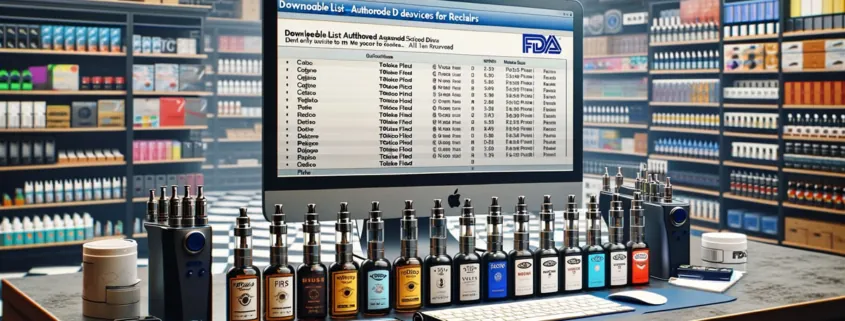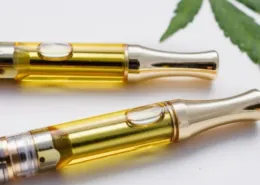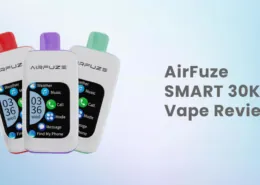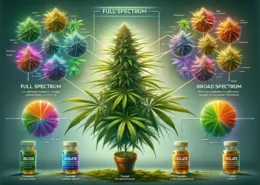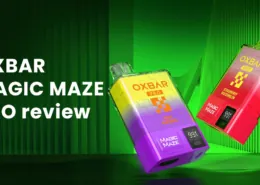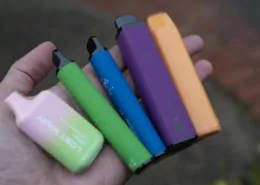FDA Authorized E-Cigarette List: What’s Really Included?(Updated July 2025)
The FDA recently released a downloadable one-page list of vaping products authorized for legal sale in the United States. Intended as a resource for retailers, the list purportedly includes “39 tobacco-flavored e-cigarettes and devices” granted marketing orders as of July 2025.
But a closer analysis reveals the actual number of unique, available vaping devices is much smaller. And the list’s categorization of certain products as “e-cigarettes” raises questions about consistency and transparency. Let’s break down what the FDA’s list really contains – and what it leaves out.
List of Authorized Vapes
(updated July/2025)
Refills and Duplicates Inflate the Count
Of the 39 listed products, 16 are actually refill cartridges or pods rather than unique devices. These are essentially “ammunition” for compatible hardware, not standalone e-cigarettes.
Moreover, the FDA counts multiple virtually identical versions of certain devices separately. For example, two Vuse Vibe models with negligible differences appear as distinct products. The same goes for two Vuse Ciro and two NJOY Daily variations.
Removing duplicate listings and refills leaves a much shorter roster of authorized devices. But even that includes a product that stretches the definition of “e-cigarette.”
When Is an E-Cig Not an E-Cig?
One device on the FDA’s e-cigarette list, the Logic Vapeleaf, is actually a heated tobacco product (HTP). Rather than vaporizing liquid, HTPs heat solid tobacco capsules. It’s a meaningful distinction.
If the FDA considers HTPs as e-cigarettes for the purposes of this list, it’s unclear why they omitted eight authorized variations of the popular IQOS HTP system. These include two menthol options the agency approved in 2019.
The inconsistent treatment of HTPs on the authorized e-cigarette list raises questions. Is the FDA trying to downplay its approval of menthol IQOS versions, given the agency’s recent anti-menthol rhetoric? Do they hope to avoid reminding the public just how many IQOS products have gotten the green light compared to e-liquid vapes? The arbitrary categorization merits scrutiny.
The Real Retail Landscape
Stripping away HTPs, duplicates, and discontinued products like the Vuse Ciro, the FDA’s authorized e-cigarette list shrinks to just 7 currently available, distinct devices:
- Logic Pro: 2tobacco-flavored refills
- Logic Power: 1tobacco-flavored refill
- NJOY Daily: 2 nicotine strengths, both tobacco-flavored
- NJOY Ace: 3 tobacco-flavored refills
- Vuse Solo: 2 tobacco-flavored refills
- Vuse Vibe: 1 tobacco-flavored refill
- Juul: 2 nicotine strenghs, 1 tobacco and 1 menthol
All of these come exclusively in tobacco and menthol flavors. No fruit, dessert options have earned authorization. For millions of vapers who rely on flavored products to stay smoke-free, the FDA’s approved options are a non-starter.
Other categories conspicuously absent from the authorized list include:
- Bottled e-liquid
- Open-system (refillable) hardware
- Pod-based devices with variable flavors
- Disposable e-cigs popular with consumers
- Virtually any product sold in vape shops
In essence, the FDA has refused to authorize any of the e-cigarettes most commonly used to quit smoking. Their approved list represents a tiny slice of the diverse vape market, catering mainly to a small subset of recent tobacco quitters.

ECIGATOR
Ecigator is one of the well-known vape brands spun off from FM Technology Co., Ltd, it’s an ISO-certified disposable vape manufacturer for OEMs, ODMs, and OBM since 2010. The founder team comes from top firms with more than 10 years of experience in the vaping industry and has devoted thousands of hours to providing users with a better and better experience.
The Bigger Picture
While the FDA’s authorized e-cigarette list is strikingly short, that doesn’t mean every unlisted product is prohibited. Hundreds of vaping manufacturers have marketing applications still pending with the agency.
Although these products lack explicit approval, the FDA has indicated it won’t take enforcement action against them while their applications remain under review. Many other companies are challenging denied applications in court, a process that can drag on for years.
So in practice, the FDA’s authorized list provides an incomplete picture of what’s legally available to retailers and consumers. Until the agency makes final decisions on all applications and resolves court challenges, the vaping market will remain in a state of uncertainty.
A Flawed Approach
As a tobacco harm reduction advocate with over a decade of experience, I believe the FDA’s current approach to vape regulation is fundamentally misguided. By slow-walking approvals and favoring a narrow range of devices from tobacco industry giants, the agency is failing in its mission to protect public health.
The FDA’s authorized e-cigarette list reflects a timid, overcautious strategy that disregards the real-world preferences of smokers trying to quit. It ignores the crucial role of flavors and device variety in helping people transition away from deadly cigarettes. And it perpetuates a double standard that privileges Big Tobacco companies over independent vaping businesses.
Instead of myopically focusing on preventing youth vaping at all costs, the FDA must strike a balance that preserves access to low-risk alternatives for adult smokers. That means authorizing a much wider spectrum of e-cigarette products, including open-system hardware, refillable pod devices, and yes, flavored e-liquids.
The agency’s current authorized list serves neither retailers nor consumers well. It’s a meager offering that fails to capture the vibrant diversity of the vaping market. And it sends a chilling message to smokers that the government doesn’t trust them to make informed choices about safer nicotine options.
If the FDA truly wants to advance its harm reduction agenda, it must do better than this paltry list of authorized e-cigarettes. It’s time for a regulatory reset that puts adult smokers’ needs front and center, not an afterthought.
- Alabama Vape Law Temporarily Blocked by Judge Gaines - August 15, 2025
- New Zealand’s Smoke-Free Revolution: How Harm Reduction Is Beating Smoking Faster Than Prohibition Ever Could - August 14, 2025
- Brazil’s Vape Ban Fails as Smoking Rises: Why Regulation is Key - August 14, 2025

